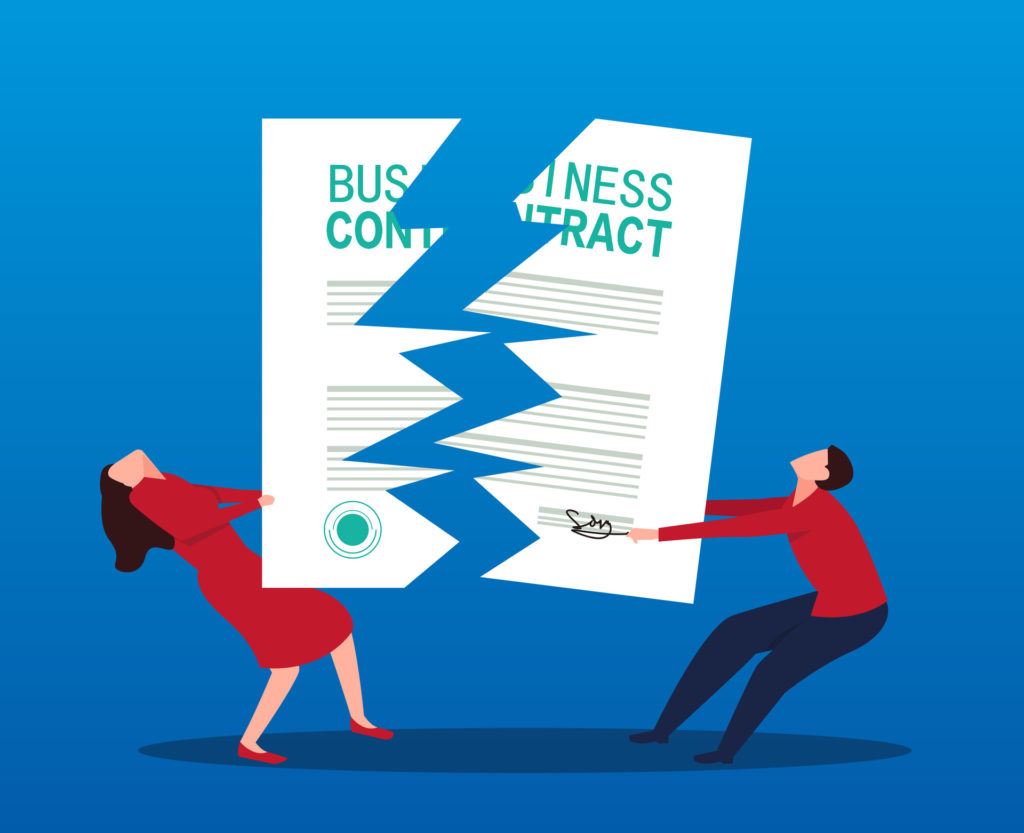What Happens to My Business if I Get Divorced?

Going through a divorce can be one of the most stressful and painful times for all parties involved. More often than not, divorce proceedings can get complicated. Unless you and your partner have set up a prenuptial agreement, the division of property and other assets can become a real challenge during divorce — especially if you run a business.
Deciding who gets the furniture, the family home, the car, or the beach house is never nearly as complicated as deciding what happens to your business. In such cases, it’s crucial to have an experienced divorce lawyer help you navigate the proceedings.
Businesses as a Marital Property
All marital assets are subject to a fair or equitable division in Maryland. This includes any business you may run by yourself or share with your spouse. Even if your business is an LLC, a type of corporation specifically designed to protect you against liability, it may still be considered marital property and subjected to equitable division.
As long as you acquired or set up the business during the marriage, it counts as marital property. Even if you owned the business before marriage, the profit or assets and debts acquired through it during the marriage may still count as marital property and be subject to equitable division.
If you owned your business before getting married, it’s best to have drawn up a prenuptial agreement before tying the knot. This would outline expectations for dividing assets in case of a divorce and help protect your business. In case you failed to prepare a prenuptial agreement, a postnuptial agreement would also suffice. It would serve the same purpose of a prenup, with the only difference being that it is executed during your marriage.
However, if you and your spouse both contribute to the business or do not have either prenup or postnup, then dividing the business will be much harder.
How Are Businesses Split During Divorce?
In general, courts do not literally divide a business between the divorcing spouses to ensure a fair split. Instead, they consider the fair market value of the business. They use this value as a basis to determine a fair division of assets.
It is rare that dissolving the business will be necessary, though it can happen in extreme cases. In many cases, courts award the business to whoever runs it. In exchange for granting one party the entire business, though, the court typically grants the other spouse other marital assets equivalent to the value of the business.
You may get the entire business to yourself but in return, your spouse may get the marital home, car, or other properties of comparable value. The business value may also be used in determining other terms of the divorce, such as who pays alimony or child support and how much should be paid.
Valuing and Dividing a Business During Divorce
Getting the fair market value of your business may require the aid of a certified public accountant, a forensic accountant, or other business valuation experts. They would essentially review all business and financial records and appraise how much a willing buyer would pay for the business.
The valuation will also account for assets and factors such as:
- Real estate properties tied to the business
- Equipment, furniture, vehicles, company products, and other physical assets of the company
- Stocks and shares of the company, if applicable
Once the fair market value of the business is determined, the courts will decide on how to equitably divide it between you and your partner. They will consider factors including:
- Level of involvement of each spouse in the business operations
- When the business was started, particularly whether it existed prior to the marriage
- Percentage of the business owned by each spouse
- Value each spouse brings to the business, such as professional qualifications
Outside of factors related to the business and its operations, the courts will also consider how other marital assets and liabilities are going to be divided, as well as who gets any kids and child support. Additionally, they would also look into yours and your spouse’s ability to earn a living wage individually outside of running the business.
Ensuring Equitable Division of a Business
If you run or own a business and are considering divorcing your spouse, make sure to consult an experienced and trusted divorce lawyer or family law attorney right away. A divorce attorney can not only help you navigate all the legal proceedings surrounding divorce but also offer sound advice regarding matters like equitable division of business and other assets.
With offices in Baltimore, Columbia, Towson, Northern Virginia, Westminster, and Dundalk, we’re here to help you with any questions you may have. Contact us, or call our experts at Albers & Associates at (443) 665-8030 to learn how we can help.
The post What Happens to My Business if I Get Divorced? appeared first on Albers and Associates.